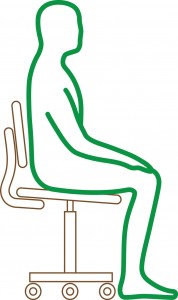 Mindful Recovery Practices™ (MRP) provide easy, embodied mindfulness methods that provide in-the-body tools to help manage pain, trauma and stress symptoms which can establish and maintain recovery.
Mindful Recovery Practices™ (MRP) provide easy, embodied mindfulness methods that provide in-the-body tools to help manage pain, trauma and stress symptoms which can establish and maintain recovery.
MRP is a fusion of two evidence-based mind/body methods that require no skill or experience, and can deliver quickly accessible benefits, especially for mood elevation, calming and lowering stress reactivity:
- Power Poses developed by Harvard Professor Amy Cuddy. Cuddy’s research indicates that within two minutes ‘expanded’, more relaxed body positions and poses lower Cortisol stress hormone levels and raise Testosterone, which promotes feeling more powerful and confident, and can improve performance and stress management.
- Alexander Technique neuro-muscular re-education and performance improvement methods used by Integrative Medicine and Behavioral Health providers such as Mayo Clinic, Harvard Medical School and Johns Hopkins for benefits such as: releasing muscle tension; lowering stress/pain reactivity; changing habitual behaviors; improving body mechanics, posture and breathing.
Wherever they are with their recovery, MRP provides clients with relaxing, in-the-body mindful movement techniques that build self-awareness and promote stress reduction/relapse prevention. Clients develop awareness of their body, posture and movements – and how to recognize and release contracted, tensed muscles, poses and movement, which helps reduce Cortisol stress hormone levels, and raise Testosterone.
MRP complements other treatments for drug/alcohol addiction and co-occurring disorders, including:
- Dialectical Behavior Therapy – DBT
- Mindfulness-Based Cognitive Therapy – MBCT
- Suboxone, Naltrexone and other medication
MRP aids clients with:
- Learning to recognize and then PAUSE and STOP habitual behaviors and reactivity, especially to stress and trauma
- Learning to recognize and release excessive muscle tension
- Improving posture, body mechanics and breathing
- Learning to use ‘expanded‘ posture and movement, rather than
‘contracted‘ posture and movement - Building poise, confidence, and more ease in performance and work
Research by Amy Cuddy and others indicates that better posture:
- Improves mood and overall health
- Builds confidence, and helps people feel better about themselves
- Improves perceptions of us by others
Clients often feel immediate benefits within one MRP class. Clients
receive simple, empowering self-directed practices to use on their own, including MRP sitting practices to use when sitting anywhere – at work, home, school and in 12 Step meetings.
Using MRP, clients dealing with all types of addiction and co-occurring disorders report that they experienced:
- Mood elevation
- Calming and anxiety reduction
- Experiencing a sense of being more “in their body”, and more present and aware mentally and physically
- More relaxed
- More “engaged” and comfortable interacting with others
- Feeling safer in their body, which especially helps with trauma disorders
- Pain and fatigue reduction
- Gaining a sense of empowerment and hope using fun, easy in-the-body recovery tools they can control themselves
MRP is taught in fun, accessible classes for all ages, abilities, and condition of clients.
Classes are typically an hour to two hours long, depending on group size and treatment program requirements and facilities.
Another benefit of MRP is unique weight-bearing methods for improving muscular-skeletal body mechanics that promote better bone health. Research indicates that alcohol and drug abuse, including marijuana, opioids and heroin, can impair bone health for male and female alcoholics and addicts of all ages. Impaired bone health issues include bone density loss, and poor healing after treatments such as dental implants and oral surgery.
Information about MRP self-directed practices and Harvard Professor Amy Cuddy’s “Power Poses” may be downloaded from the following links:
- Self-Directed Mindful Recovery Practices
- Mindful Recovery Practices: Self-Directed Sitting
- Mindful Recovery Practices: Self-Directed Standing
- Amy Cuddy Harvard Power Poses Study: 6-Page Summary
- New York Times Article: Amy Cuddy Takes a Stand
- TED Talk Power Poses Figure
References and testimonials for Becca Ferguson and MRP can be found in the
Testimonials section of this website.
© 2022 Rebecca Ferguson Keays and Mindful Recovery Practices (MRP). All rights reserved. No portion of this website may be copied or used without permission.
Power Poses and Alexander Technique are evidence-based wellness practices, not medical treatment. Consult a medical professional prior to practicing Mindful Recovery Practices.
